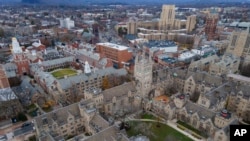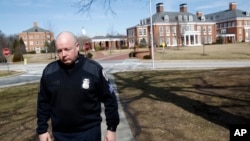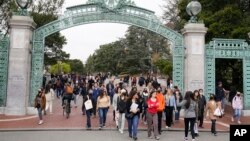Student Union
New in the Glossary of Confusing Words: Webinar
I couldn't find this word in Longman Dictionary and also in google translate online.
We use it, EducationUSA uses it, but what is it?
"Webinar" is one of those made up internet words, like e-book or tweeps, that tries to describe something that happens on the internet instead of in real life. It’s actually a combination of the words “web” (as in, internet) and “seminar.” When you smash them together you get “webinar” (see it?).
So a webinar is a seminar, workshop or lecture that happens online.
You might also hear the word "webcast," which is a broadcast that happens online (web + broadcast = webcast). The difference between a webinar and a webcast is that a webinar is usually interactive, allowing you to ask questions, while for a webcast you can usually watch but not participate.
Check here next Friday for a list of upcoming webinars and webcasts. Now you'll know exactly what they are!
Do you have a word to contribute to our Glossary of Confusing Words? Share words that have confused you or that might confuse others about studying in the U.S. Leave your suggestions in the comments, or use the form below.
Loading...
See all News Updates of the Day
Proposed settlement offered over financial aid allegations

A group of U.S. colleges and universities have agreed to settle a lawsuit alleging deceptive financial aid tactics, according to a report published in The Hill.
The schools would pay $284 million to plaintiffs who were enrolled full-time and received financial aid between 2003 and 2024.
The schools have denied the allegations. (April 2024)
Universities in Middle East building research relationships with China

As China bolsters research relationships with universities in the Middle East, the United States has taken notice – especially when that research involves artificial intelligence.
Reporting for University World News, Yojana Sharma has the story. (March 2024)
Tips for staying safe while studying in the US

Recent news events have raised safety concerns among some international students studying in the United States.
Adarsh Khandelwal, writing in the India Times, has tips for staying safe from the moment you arrive until the day you complete your studies. (March 2024)
Some colleges are making digital literacy classes mandatory

A 2019 study by Stanford found that most college students can’t tell the difference between real and fake news articles. Amid rampant online disinformation, and the threat of AI-generated images, some schools are making students learn “digital literacy” to graduate.
Lauren Coffeey reports for Inside Higher Ed. (March 2024)
With federal student aid delays, students aren’t sure what college will cost

The U.S. Department of Education’s federal student aid form (FAFSA) experienced serious glitches and delays this year.
Now, many students have been admitted to college, but don’t know how much money they’ll need to attend.
Read the story from Susan Svrluga and Danielle Douglas-Gabriel for The Washington Post. (March 2024)







